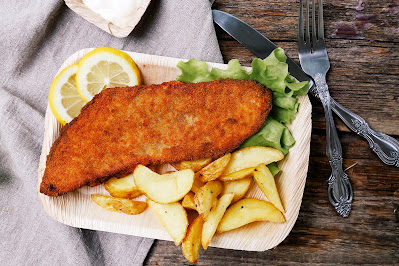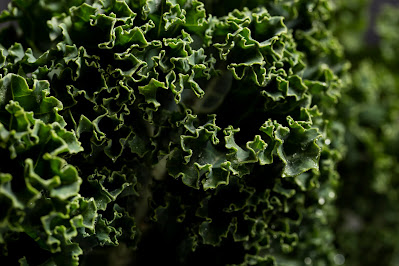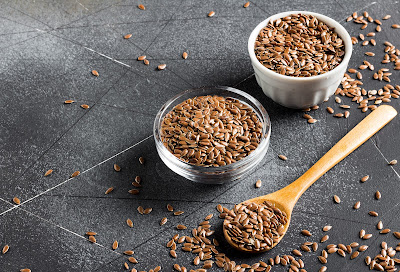Most people don’t realize that what they eat has a direct impact on the health of their skin. In fact, certain foods can actually help to clear up acne, reduce wrinkles, and give you an all-around healthy glow. So if you’re looking to get your skin in tip-top shape, make sure to add these foods to your diet!
Nutrients that benefit your skin
Your skin is your largest organ and it’s important to
nourish it from the inside out for optimal health and appearance. So it's no
surprise that what we eat can have a big impact on our skin health. Eating a
healthy diet is important for maintaining good skin health, as well as overall
health and fitness. Here are some nutrients that are particularly beneficial for your skin:
Vitamin A: Vitamin A is essential for the production
of new skin cells and the repair of damaged ones. So, Vitamin A is essential
for cell turnover, which helps to keep your skin looking fresh and radiant. It
also helps to keep your skin moisturized and can protect against premature
aging. Foods rich in vitamin A include kale, spinach, apricots, carrots, dark
leafy greens, and sweet potatoes. Sweet potatoes are rich in beta-carotene.
Vitamin C: Vitamin C is a powerful antioxidant that
can help to protect your skin from damage caused by free radicals. It also promotes
collagen production, which helps to keep your skin looking youthful and plump.
Foods rich in vitamin C include citrus fruits, bell peppers, strawberries, broccoli, and tomatoes. Tomatoes are rich in lycopene.
Vitamin E: Vitamin E is another antioxidant that can
help to protect your skin from damage caused by free radicals. It also has
anti-inflammatory properties which can help to soothe irritated skin. Foods
rich in vitamin E include almonds, sunflower seeds, and spinach.
Omega-3 Fatty Acids: Omega-3 fatty acids are
essential for healthy cell membranes, which help to keep your skin hydrated
and supple. They can also help to reduce inflammation and redness. Foods rich
in omega-3 fatty acids include salmon, tuna, walnuts, flaxseeds, and chia seeds.
Zinc: Zinc plays a role in wound healing and helps to
keep the skin looking smooth and elastic. Foods rich in zinc include oysters,
beef, and pumpkin seeds.
Essential fatty acids: Essential fatty acids help to
keep the skin moisturized and can be found in foods like salmon, avocados, and
nuts.
Best foods for healthy skin
AVOCADOS
Avocados are a good source of vitamins C and E, two of the
numerous antioxidants that aid in preventing cell deterioration. Lutein and
zeaxanthin, which are found in avocados, assist to even out skin tone. Avocados
are a good source of monounsaturated fat, which aids in the body's absorption
of vitamins A, D, E, and K. And also, you can get more lunch ideas & recipes here.
TOMATOES
Lycopene, a strong antioxidant that shields skin from UV
damage, is abundant in tomatoes. In fact, compared to a control group,
participants who consumed five tablespoons of tomato paste daily exhibited 33%
more protection against sunburn.
FATTY FISH
Those who have skin problems avoid greasy foods. But it's
crucial to remember that not all fats are created equal. Cold-water fatty fish,
such as herring, sardines, and salmon, which are rich in omega-3 fatty acids,
may be advantageous for the skin.
According to a study, omega-3 fatty acids, particularly in
those with the highest risks, help lower the incidence of non-melanoma skin
cancer. The acids lessen skin inflammation and immunosuppressive indicators as
well as UV radiation damage. Therefore, eating a diet rich in omega-3 fatty
acids may cause the skin to be less sensitive to the sun's UV radiation.
Additionally, vitamin E, a vital antioxidant, is found in fatty fish.
NUTS
Almonds, peanuts, and hazelnuts are just a few of the
vitamin E-rich foods that can help slow down some of the signs of skin aging.
In order to sustain the skin, collagen must not be broken down, which is
something that vitamin E helps to avoid. Another potent antioxidant that works
to prevent cell damage brought on by free radicals is vitamin E.
CARROTS
High quantities of beta-carotene, a precursor to vitamin A
and a form of the major active component in Retin-A, are responsible for the
vegetable's orange color. There is some evidence that this vitamin can treat
psoriasis and that it can also reduce the production of skin oil.
DARK LEAFY GREEN (Kale & Spinach)
Actually, any type of dark leafy green is a nutrient
powerhouse. They include a nearly complete alphabet of vitamins, many of which
are skin-friendly antioxidants. According to research, those who
consume two to three servings of dark leafy greens per week had a lower risk of
skin cancer.
FLAXSEEDS
Alpha-linolenic acid, an omega-3 fatty acid, is abundant in
flax seeds. One easy strategy to increase the intake of omega-3 fats and
maintain healthy skin is to grind fresh flaxseeds and add them to smoothies or
salads.
Female participants with sensitive skin who took a flaxseed
oil supplement for 12 weeks improved their skin's smoothness,
moisture, roughness, and scaling.
GREEN TEA
Green tea is a nutritious and invigorating beverage that
also has some ingredients that may be good for the skin. Catechins, a type of
antioxidant particularly abundant in green tea, increase the blood flow to the
skin. An increase in blood flow ensures that the skin cells receive nutrients and fresh oxygen regularly, maintaining their health. Green
tea's antioxidants can shield the skin from damaging UV rays.
GREEK YOGURT
Greek yogurt is excellent for getting rid of wrinkles and
fine lines. It is abundant in B vitamins, which aid in skin detoxification.
However, take note of the focus on the Greek component of this yogurt; there
is a distinction. One of the supposedly healthy foods that aren't truly healthy
is flavored yogurt because it might cause wrinkles on your skin. Yogurt also considers the healthiest breakfast as well.
DARK CHOCOLATE
On your skin, cocoa has some pretty amazing properties. Cacao
is a great source of minerals and antioxidants that reduce inflammation in the
skin. Additionally, they looked into how chocolate might be used to treat and
prevent skin conditions like psoriasis and acne.
Compared to low-antioxidant chocolate, 20 grams of
high-antioxidant dark chocolate per day could help your skin survive more than
twice as much UV radiation before burning. To optimize the advantages and limit
added sugar make sure to select dark chocolate that contains at least 70%
cocoa.

.jpg)







.jpg)





No comments:
Post a Comment